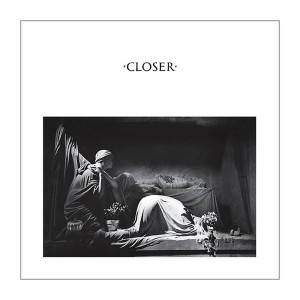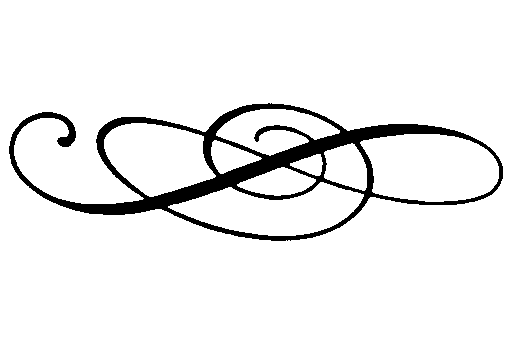

 Joy Division
Joy Division
| Release date | Label | Producer | Genre | Length | More info |
| 1980.07.17 | Factory | Martin Hannett | Mope Rock | 44:16 |  
 |
The LP of Revelation (To St. Ian of Lancashire).
Background
Unlike
the fanatical adepts of "hardcore", those bands that started out under
the regular punk banners (around 1976-78), unless they simply imploded
(like the Sex Pistols), tended to reach the "maturity stage" fairly
soon — sometimes very soon,
so that you really have to go all the way back to the earliest singles
of The Police or The Cure, for instance, to understand where they were
coming from. For all these people, the punk revolution was merely a
formal pretext, an initial floating lifesaver that helped them get used
to the waters. By 1980, punk à la
Clash was pretty much as dead as the Kennedys, and in its place we
simply had a whole new generation of art-rockers, with new horizons to
explore. Some of these original punkers were cautious optimists and
dedicated progressives, which led them to experimenting with world
music and avantgarde. Others were pessimists and painted their waters
squid black, worshipping at the shrine of Jim Morrison but also
updating his vision for the contemporary era with its intellectual
demand for less clichéd lyrical imagery.
In this context, Joy Division's Closer
could be regarded as belonging to the same class as early records by
Siouxsie & The Banshees, The Cure, Bauhaus, and numerous lesser
acts commonly classified as "doom rock", "Goth", etc., and, in fact, Closer is
frequently listed in the higher ranks of lists like "top 20 greatest
Goth rock albums". However, as it often happens with trend-setting,
genre-defining albums, the intentions behind its release never included
setting any trends or defining any genres - everything simply revolved
around the songwriting talents of the band members and the inner demons
of Ian Curtis, overfed and ready to tear their host body to pieces by
early 1980. If anything ever drove the band forward, it was a desire to
overstep the boundaries of the formula developed on their previous
album: Unknown Pleasures was
already a masterpiece behind their belt, but it was really "dark pop",
a record on which the songs were still too short, too much influenced
by their punkish past, too reliant on classic structure - and so, in
the good tradition of art rock, the next record had to focus on the
elements that made Joy Dvision what it was, untying all the birthcords.
There was no intention to release something specifically flashy or
theatrical, something image-centered: just a little something that
would help them completely stand out from all the rest. They had the
experience, and the talent, and the means of production, so why not?
They didn't even realise at the time that they were all lending Ian
Curtis a hand in writing his own musical testament...
It may seem curious that the album, obviously much less accessible than Unknown Pleasures, ended up selling far better and going as high as #6 on the UK charts (as compared to a ridiculous #71 for Unknown Pleasures). However, there were two external factors that must have predicted the success. First, obviously, was the suicide of Ian Curtis on May 18, which made the reclusive and deranged frontman one of the most talked about people in Britain for a brief while. Second was the release of ʻLove Will Tear Us Apartʼ as a single in June: the song, a bouncy and quite romantic-sounding (never mind the dark thoughts at the core) piece of New Wave pop, became a smash hit, and certified both the ensuing success of Closer (although I do wonder how many people , who went out and bought it due to admiration of ʻLove Will Tear Us Apartʼ, got themselves quite a nasty shock upon seeing themselves locked in a sonic crypt with Ian's ghost) and, for that matter, the future of the Ian-less Joy Division as New Order. Without these two factors driving up sales, Closer would hardly stand a commercial chance, although critical reception would probably have been rapturous all the same.
As a sidenote, the 2007 special edition of the album adds an entire bonus disc of a live show recorded on February 8, 1980, at the University of London Union, where the band was already debuting a large chunk of titles from Closer, mixed with various oddities (curiously, only one song from Unknown Pleasures) and played to dedicated and highly supportive fans (which you can tell not merely by the fact of continuous applause, but also by shouts of people requesting ʻLove Will Tear Us Apartʼ from the front rows - a song that had not yet even been released officially). The sound quality is fairly awful (clearly not a soundboard recording), and on the whole, material from Closer does not easily lend itself to live performance by a small band (ʻThe Eternalʼ suffers worst of all, primarily due to the lack of piano), but the show still remains a priceless historical artifact.
For the
defense
Unlike Unknown Pleasures, Closer can take some time to set in properly. The songs are slower, longer, more repetitive, less flashy, and even more dependent on atmosphere - and it is certainly not a comfortable kind of atmosphere, either. A kind of atmosphere created by a 24-year old man with the mind of an 80-year old Faust, fed up with and let down by all of earthly pleasures, Closer is an album about the end of The World - where "The World" is understood from a purely personal perspective, and the distinction between The World outside and The World inside the protagonist is completely irrelevant (and existentialist philosophers might tell you anyway that there can be no difference established between "the end of me" and "the end of the universe"). This is the kind of musical album that Schopenhauer might have produced, were he a musician in the rock era, and not everybody wants to feel like Schopenhauer. In a way, I guess, you'd have to put yourself into an Ian Curtis frame of mind in order to completely "get" and "savor" the record, and that might not end well.
Although the record did not originate as an intentionally conceptional suite, common thematic threads run through all of it, and the overall flow is near perfect. The first song tells us that "this is the way, step inside", and there is little doubt as to the location of the place to which we are invited: Sumner's guitar lines, consisting mostly of frantical industrial scraping, suggest incessant suffering and torture, while Morris plays a complex, but fully robotic percussive pattern that suggests some merciless cog grind - this is Hell, either literally so, or perhaps just the private Hell in Ian's own mind (remember, there's really no difference). There's a formalistic explanation of ʻAtrocity Exhibitionʼ - about how it was influenced by the works of J. G. Ballard, and how Ian's lyrics summarize his "condensed novel" approach - but it would hardly make sense if Ian was just writing about J. G. Ballard and not himself. Maybe Sumner, who, as he himself would confess later, often missed the point of Curtis' words, did take the inspiration for those grating avantgarde guitar parts from J. G. Ballard, but in any case, they fully agree - at least, they are extremely symbolic of - Ian's state of mind at the time, and the track is a perfect intro to whatever follows, even if it's hardly among my favorites (for lack of subtlety).
What follows is a huge tract of emotional wasteland, formally divided into separate tracks but setting more or less the same mood. If Joy Division were merely a backing band for Curtis, things would have been difficult: Curtis was more of a poet than a songwriter, and probably even more of a poet than a singer (despite the eerie similarities of his low voice with Jim Morrison's, he could do fewer things with it, and could never have as much power or precision as Jim at his best). Fortunately, though, the band members were interested in setting Ian's poetry to inventive music, and after a while, when you've had your big fill of Curtis and your attention begins drifting away towards the instruments, you will probably see how different the songs are from each other. Melodic ideas and cool combinations of ideas are everywhere - look at the awesome contrast between the heavy, doom-laden bass line and the Kraftwerk-ian synthesizer lead line of ʻIsolationʼ; revel in the menacing snap of the bass melody of ʻPassoverʼ (the little swoop at the end of the main four-note riff seems like a helldog biting at the protagonist's trousers); acknowledge the jagged angular roughness of the post-punk guitar/bass duet of ʻColonyʼ; feel the thrilling suspense of the soft, but inescapably dangerous bass pattern of ʻHeart And Soulʼ, around which the synthesizers quietly moan and groan in a ghostly fashion... I could go on, but the fact is, despite setting similar moods, all these tracks have their individual voices as well. And it's not that easy - in the case of The Cure, for instance, it took them almost a decade to make each song on a given album ring out with its own voice (Joy Division took less than two)
With all this melodic brilliance in sight - and I do mean brilliance: Hook's bass work, in particular, should rank among the world's finest exercises in meaningful minimalistic melodicity - it is almost reluctantly that we turn again to Curtis and his demons, but they do complete the picture, and the best tracks on the album are still the ones where he manages to give a particularly memorable performance. On ʻColonyʼ, for instance, a song about the slashing cruelty of loneliness, the climactic part arrives with Ian's screams of "God in his wisdom took you by the hand, God in his wisdom made you understand!..." - that's when he realizes that it is the will of God that he endure that cruelty, and makes it felt with all the desperation that he can muster (again, Jim Morrison, with his overall stronger physique, could have made that sound even more powerful, but give the kid a break). On ʻHeart And Soulʼ, on the contrary, he quiets down his voice to match the equally quiet menace of the music, and the chorus mantra of "heart and soul, one will burn" becomes one of the most chilling moments in Joy Division history. The song never really rises above the volume of eerie whisper, but you can easily sense that fire and brimstone are just around the corner, all the time. (I particularly like how this is hinted at by the sudden increase in volume of Morris' drumming at 5:06 - just as the song begins to fade out... it's like they're sparing you the actual meeting with the rapidly approaching Doom, so in the end you can only fantasize about how that one would have looked).
For all of the atmospherics, though, Closer is actually a much more energetic and rocking record than it emerges out of all the verbal descriptions - the first seven tracks are all based on loud drum patterns, fast-rolling bass grooves, distorted riffage, or, in the case of ʻIsolationʼ, synth-pop hooks, so it is largely the sameness of mood and the relatively slow tempos that are responsible for its dirgey reputation. And, of course, the last two songs. ʻThe Eternalʼ stands out as the band's most ambitious dig into The Transcendental: the song moves on slowly and gravely, like a silent funerary procession in the days of The Black Plague, to the electronic instrumental hum that imitates medievalistic choir singing, over which we superimpose the Dark Angel piano melody - and Curtis' quietest, softest, and scariest singing ever: there are but two verses, one of which describes the "procession", and the second of which turns to the narrator itself ("cry like a child, though these years make me older...") - meaning that the "procession" is really an allegory, as the hero is witnessing his own funeral in his head. This solemn atmosphere (created by the most minimal means) is only matched by ʻDecadesʼ, where the band goes for a bit of a crescendo effect to create a grand finale - after all, here Ian is trying to speak up for his entire generation ("here are the young men, well where have they been?"), implying that his own troubles are, perhaps, everybody's troubles. There's no particular bombast, merely a few minor key keyboard overdubs that collectively create and gradually amplify the ultimate feel of desolation and hopelessness and complete the album's journey from initial pictures of cruelty and brutality to final sentiments of coldness and death-in-life.
In short, this is Ian's personal journey through his own version of the Nine Circles of Hell, and you could probably attach a special name to each one - just off the top of my head, here's a try: Cruelty (ʻAtrocity Exhibitionʼ), Loneliness (ʻIsolationʼ), Madness (ʻPassoverʼ), Seclusion (ʻColonyʼ), Disillusionment (ʻA Means To An Endʼ), Fatalism (ʻHeart And Soulʼ), Agony (ʻTwenty Four Hoursʼ), Mourning (ʻThe Eternalʼ), and, finally, Cosmic Grief (ʻDecadesʼ). In other words, a fairly jolly party record, this one - don't forget to bring it to all the birthdays and weddings you're invited to, just to remind people that, you know, the other side of the coin is always there.
For the prosecution
Like most of the "grand statement" albums made by young, barely experienced, artists with limited musical training, Closer inevitably suffers from the "grasp exceeding the grip" factor. Where Unknown Pleasures, for all its individuality and innovation, was still very much a pop album, firmly grounded in punk aesthetics, and did not require a lot of musical experience, Closer moves into the ambitious fields of art rock, where the technical limitations of the players and the singer become felt much more acutely. Thus, the songs tend to be long, but the groove never changes, and unless you manage to fall under its hypnotic spell really quickly, the probability of getting bored soon begins to grow exponentially. I remember it well myself, how Unknown Pleasures used to feel entertaining, whereas Closer just had too many yawn-inducing moments, and, indeed, even now I think that at least some of these tracks are better appreciated on a symbolic / intellectual level than on gut feeling level (ʻAtrocity Exhibitionʼ is amazingly well constructed, but I still believe it makes you think of torture chambers rather than feel yourself inside one). And while Ian's singing in general clearly comes from the heart and is well compatible with the sonic textures of the album, I do admit that it is all on a one-way street, and I would certainly have welcomed more tracks on which he deviates from the "Prophet Ezekiel" formula (like ʻThe Eternalʼ).
Not everybody is a fan of Martin Hannett's production, either (even Sumner himself used to grumble that he'd committed the same mistakes here that he did on Unknown Pleasures). On the whole, the claustrophobic, echo-laden sound, where you seem to be trapped in some underground bunker and the voice of Ian comes to you from the cracks of the concrete ceiling above, seems to be the right kind of sound for Joy Division in general and Closer in particular. But ever so often, it gives the album a lo-fi, "homebrewn" feel that does not ideally agree with the "personal apocalypse" grandiosity of the design, and I can't help wondering whether ʻAtrocity Exhibitionʼ or ʻColonyʼ would not have sounded even more impressive and devastating in the hands of some other producer (like Daniel Lanois, for instance). Not that it does not have a unique sound - in a way, it is one of the sounds that pretty much defined the post-punk era - but I am not completely sure that it is the kind of sound that would ideally reflect whatever was going on in the mind of the band's frontman. Though it did come... closer.
Conclusion
| Melody | Voice | Mood | Production | Innovation/Influence | Where it belongs | RYM preference | |
 |
 |
 |
 |
 |
 |
#36 (Sep 04, 2016) |

| Previous entry | Main page | Next entry |